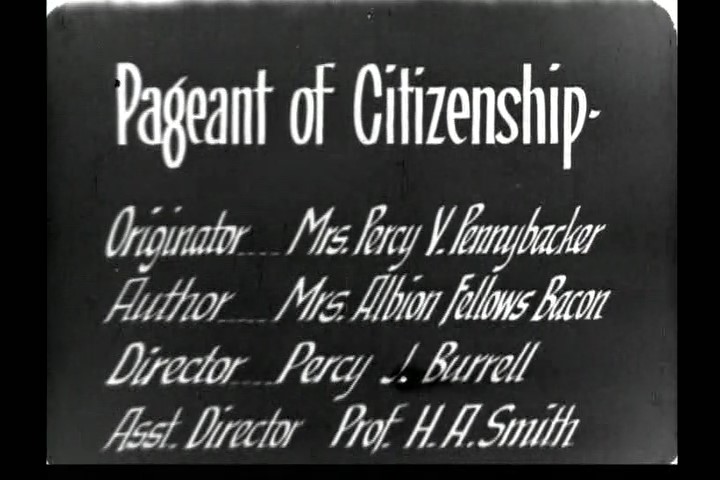As Chautauqua Institution jitterbugged into the Roaring Twenties, Women’s Club President Anna Pennybacker was repulsed by the “vulgar amusements” of the community during Independence Day celebrations. So she set out to make a new one.
“There were a variety of different things, (like) pole climbing and fat man races. She thought (the holiday) should be some dignified commemoration of the Declaration of Independence,” said Jon Schmitz, Institution archivist and historian. “(Pennybacker was) unhappy with the way that the Fourth of July was being observed and instead suggested that they celebrate a Citizen’s Day.”
In 1923, Pennybacker, the Institution, and the community hosted Chautauqua’s first Independence Day Citizen’s Pageant. Schmitz will present a recording of this celebration at 3:30 p.m. EDT, Friday, Aug. 14, on the CHQ Assembly Video Platform as part of the Oliver Archives Heritage Lecture Series.
The pageant was a series of reenactments of American history. The script and score was written by Albion Fellows Bacon, and the New York Symphony performed.
“They got together a bunch of people from the grounds who would play the various roles (in) vignettes from American history, illustrating what was important, the value of American citizenship and so forth,” Schmitz said. “The trouble was that the more vulgar amusements that she wanted to replace (continued) as well, so it wasn’t that much of a success.”
Nonetheless, this pageant was recorded and 50,000 copies of the script and score were distributed nationally; Schmitz estimates that 500 communities replicated it on their own.
Pennybacker’s image of a Citizen’s Day was not originally based around a pageant.
“She suggested that those who would be voting for the first time — as women, or as immigrants — would gather and then be processed to some public domain like the town courthouse or something and they would have people talk about citizenship and then they would all take the allegiance,” Schmitz said. “Many communities actually did that.”
Schmtiz noted that the film shows how the pageant addressed the issues.
“(The film) is also of interest because there’s such great attention paid to immigration, and immigration was pretty much the number one issue at this time — between 1921 and 1924. There had been great concern over immigration with debate over immigration at Chautauqua, but also more importantly throughout the country,” Schmitz said.
There was a fear of mass immigration into the United States following the First World War, so Congress enacted legislation to limit immigration through literacy tests and strict criteria. This legislation included the Emergency Quota Act in 1921 and the Immigration Act in 1924.
“I hope (the audience) enjoy (the film), and I hope that they have a clearer view of what Chautauqua was like in the early 1900s, and how people were viewing immigration,” Schmitz said.
This series is made possible with a gift from Jeff Lutz and Cathy Nowosielski.





